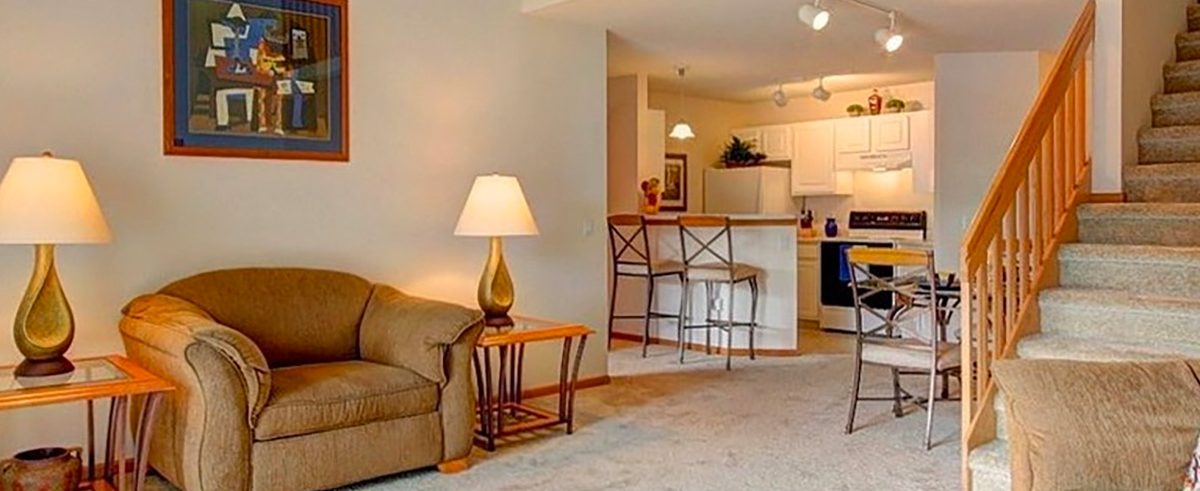What to Ask When You Find the Apartment You Want
October 29, 2015

You finally found the perfect apartment. It’s not too far from your work or campus, there’s enough shopping and entertainment nearby, and it’s the right price for your budget. When it’s time for your interview, you’ve got the documents and the attitude that will impress the landlords or property managers. However, be sure you don’t forget one of the most important documents of all: your own list of interview questions for them. The last thing you’ll want to find out after you’ve signed the lease is that the apartment you thought was a rare gem is only someone else’s discarded tin foil, glinting in the sun. We’re here to tell you what needs to be on that list.
First things first: getting down to business
After all, it might be a prospective tenant interview, but you are also a customer, and it’s up to you to decide where to spend your money. Don’t fall in love with any one place so much that you forget how lucky the property managers would be to have you as their tenant.
Once you understand the business basics – like how the rent is collected, when it is due, and which utilities you are expected to cover – you should also find out the property management company’s background. How long has it been operating, for example, and how many properties does it manage? Is the company locally owned or part of a large corporation with national or global reach? You’ll be able to get a sense of the responsiveness you can expect to any concerns that might arise should you choose to sign a lease.
Speaking of responsiveness, don’t forget to ask about maintenance policies and practices
Be sure you know how to report any maintenance concerns that creep up, from something minor such as a running toilet or a loose door knob, to an emergency situation like a natural gas leak or downed electrical wire. In addition, find out if there is a pest control schedule that you will need to plan around, and ask what pests are the most common. You’ll also want to know what to do if you suspect mold or mildew growth.
Finally, be sure they give you a sense of when to expect the maintenance staff to return your calls. Do they provide ample notice when accessing your residence for non-emergency repairs? They certainly should.
Next, ask about community affairs issues
You will be comfortable making the decision to rent the apartment if you know something about the local culture you might be joining. The building and grounds may have recreational facilities you’ve overlooked, for example, which often encourages the mingling of neighbors. Double check what’s available, and know if there are usage limitations imposed upon you or your guests.
Ask about the general age range of the tenants. If you have young children, ask if there are many other young children in the building, or maybe a teenager babysitting club. Also, does management organize community activities and events? Is there a neighborhood association, or some way for residents to communicate with one another? Facebook groups for neighborhood watch committees, for example, are becoming more and more popular.
And what if you find yourself in a conflict with another resident, or become aware of a violation that requires reporting? Who should be contacted, and how are disputes or infractions usually handled?
Lastly, don’t forget to check their policies on travel and security
You’ll want to know if you can tolerate the building’s parking policies, and whether or not the city’s public transportation options alone are sufficient to accommodate your commute. Find out what type of security measures are in place, and if the system has been effective in the past. Are break-ins and burglaries common in the building or in the region? Are deadbolts standard to each unit, or can one be installed for you if not?
Has there ever been a fire in the building? And what steps are taken to comply with air filtration standards and the monitoring of dangerous gases like carbon monoxide and radon? Hopefully, you’ll find out from their answers that they’ve thought of security and safety concerns that would have never crossed your mind. If so, that’s a good sign that you’ll be able to sleep soundly at night should you choose to sign the lease.
When you arrive for your tenant interview, have the above topics ready, and add your own questions based on your unique situation
As you bring up these topics, don’t listen only for the answers. Take note of the property manager’s demeanor, as well. Answers should spring easily to mind, and your questions should be happily received. Your questions demonstrate that you are a responsible and stable tenant that any landlord would be lucky to welcome to your new home. If your questions are met with annoyance, impatience, or incompetence, you need to think twice about moving in. Because no matter how great the countertops or how convenient the location, you’ve still got to live there.

